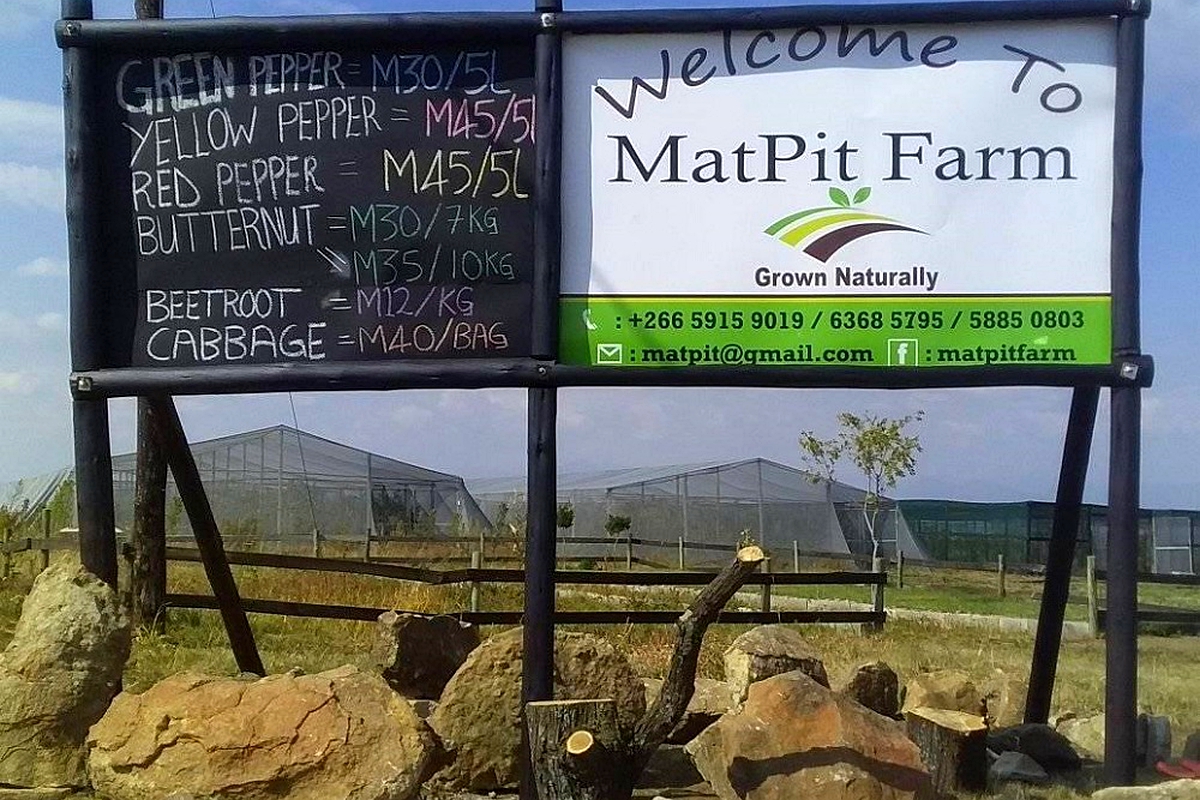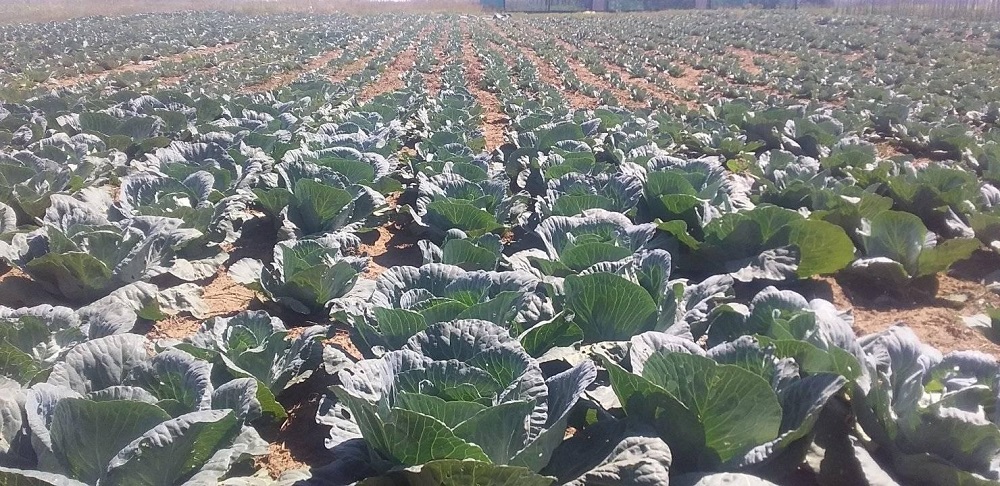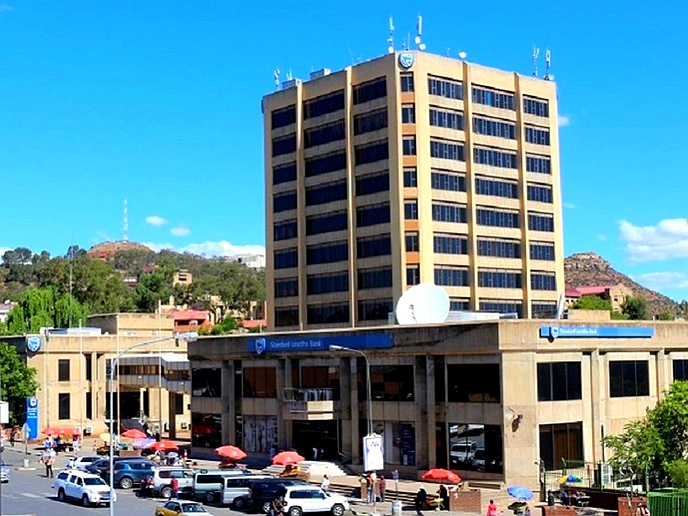MATPIT Farm in Sehlabeng sa Thuathe, Maseru covers about 60 000 metres squared of land! At its peak this year, it produced 40 boxes of tomatoes a day and 60 packs of green, yellow and red pepper a day along with 160 litres of green beans a week.
business
May 11, 2021
STAFF REPORTER
4 min read
Meet the man who manages the Matpit farm

It also produced 130 x 10kg and 120 x 7kg bags of butternut. And of course there were nearly 4 200 heads of cabbage in the field.
This massive farm with a battalion of 12 workers is managed by a young man called Tebatso Rankakalo – a graduate of the Lesotho Agricultural College (which is an affiliate of the National University of Lesotho (NUL)).
If one considers the stats above, then it is not surprising that MatPit Farm supplies among others, Enrich Supermarket, the two Pick ’n Pay outlets in Maseru, Mahapu Fruits and Veg and Maluti Fruits and Veg.
“I never really liked agriculture as I was growing up, in fact, I could say, I did not give it too much attention,” he says. “However, at some point in life, I decided to join the Agric College and, oops! Here I was, learning the secrets of agric.”
Rankakalo says he then grew to love Agric, the more he learned about it.
When he was done with schooling, something interesting happened. He was asked to manage a young but promising farm located in Thuathe.
Who would say no to such an opportunity for a young agric graduate?
The farm was just a few months old when he joined it. Not much had been done. Of course there were beans; some spinach and so on had been grown. Some shade-net structures were being erected. So his job was clear-cut. He had to make sure that the farm produced food for the people.
“That wasn’t easy.” The soil in that place is, as he puts it, “loamy to sandy.” Whatever that means, but sandy soil is not so good for crops. “Fortunately, the owners of the farm had already tested it so I knew what I was dealing with.”
So he had to prepare the soil.
That was not going to be cheap. “I had no option but to put in as much animal manure and fertilizers as possible. That was costly but necessary.” You can already imagine the dismay on the faces of his employers as loads and loads of compost was being swallowed by the clearly hungry soil.
But the nature of soil is that it doesn’t give unless it takes.
Once the soil was prepared, he started growing the crops, some under shade-nets and others on open land.
But he also had a water problem. The sheer size of the land meant that the already existing borehole was not enough. Thankfully, nature intervened. “We immediately got into the rainy season and that was a relief.”
Of course good farmers realise that true agriculture needs water, not rain—not necessarily rain. So plans are underway to provide more boreholes because, who knows what the next growing seasons hold in terms of rain?
The farm does not only have crops, there are animals too. At the moment it has two kinds of chickens, Boschveld chickens and indigenous chickens,” he says.
There are plans to increase the population of animals.
The farms also experiments with a variety of herbs.
Enjoy our daily newsletter from today
Access exclusive newsletters, along with previews of new media releases.

Cabbage produced at the farm
“Man could direct his ways by plain reason, and support his life by tasteless food, but God has given us comedy and flavour, and brightness and laughter and perfumes,” he says.
Rankakalo says they have been testing waters, so to speak, to find out if the local market is ready for the kinds of herbs they produce.
Lesotho is yet to accept the important role herbs play especially in enhancing the taste of food.
“We need more than just salt and fish-oil folks. However, we did notice that some herbs are really popular,” Rankakalo says
All in all, he says he is extremely happy on the farm as he thinks it is on the right path although it is still quite young, “my training in agriculture helps a lot. Combining that with on-the-job learning is great.”
How could he not be happy growing crops and taking care of animals?
“Quite frankly, that is the only work we know which man was really designed to do. Anything else is an invention –sitting behind computers all day long is a worst form of such inventions.”
Tailored for you






